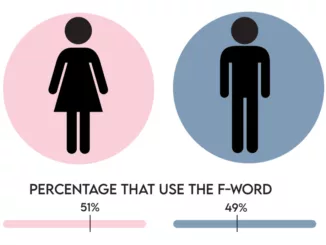
design: Cris Ropero Montoya
illustration: Ainsley Robare
My grandma fumbled with the receipt paper, scanned the bottom and smiled with contentment. “It’s only $280 this time!” We looked at each other astonished but for different reasons. While she was satisfied with the deal she got on her insulin, I was baffled that her life-saving medicine could cost so much.
The pharmaceutical industry thriving at the expense of others is a global issue, but with no free healthcare, it is an even larger issue in the U.S.; it doesn’t make sense how life saving medicine could quite literally cost someone’s life.
My sister used to come home from her pharmacy job and tell of different instances where people would break down and cry in front of her counter because they couldn’t afford medicine. They must live without medicine as those around them profit from their suffering.
Not only that, the markup on medicine is outrageous in comparison to the production cost. My mom vaccinates younger children with respiratory viruses using a medicine known as SYNAGIS; it costs $100 to produce 100 milligrams, and to pay for it without insurance, it costs around $4099.
Our accessibility to affordable health care needs to improve from where it currently resides, it has become too much to undergo. The Affordable Health Care Act that was enacted in 2010 expands medical insurance to a significant number of people who struggle to afford medicine, but not all.
Countries such as Denmark and New Zealand already have access to free health care, and as a result, their populations do not have to worry about their health when it comes to purchasing medicine.
The United States on the other hand is the No. 1 spender on health care in the world, but they refuse to make it more accessible. If it’s already a significant part of their budget, it makes no sense as to why they would not increase the budget to account for free health care when it seems obvious they place emphasis on it.
Fortunately, some reform has already occurred among Big Pharma. In just a short amount of time, the allergen company EpiPen had its prices skyrocket and charged absurd prices to the point that people with severe allergies could no longer have affordable medicine. This was taken to court, and EpiPen lost its case, having to reduce the prices of its medicine.
Companies like Purdue Pharma from Oklahoma had to come to terms with more severe legal consequences after creation of the well-known opioid, OxyContin.
According to NPR, Purdue Pharma marketed the drug relentlessly, agitating the opioid crisis. After being sued by Oklahoma’s attorney general, the company paid $270 million to compensate for addiction research and treatment in Oklahoma. However, the settlement did not return the countless lives lost as a result of their materialistic actions.
More cases like EpiPen and Purdue Pharma need to take action in order to reduce the amount of profits medicine companies receive. It is understandable to need to make money, but it should never outweigh the cost of someone’s life.
Like every other person, I come from a family filled with medical issues, and we each need our own prescriptions. I hate watching us struggle with illness and disease because a company would rather see dollar bills than people living in good health.


